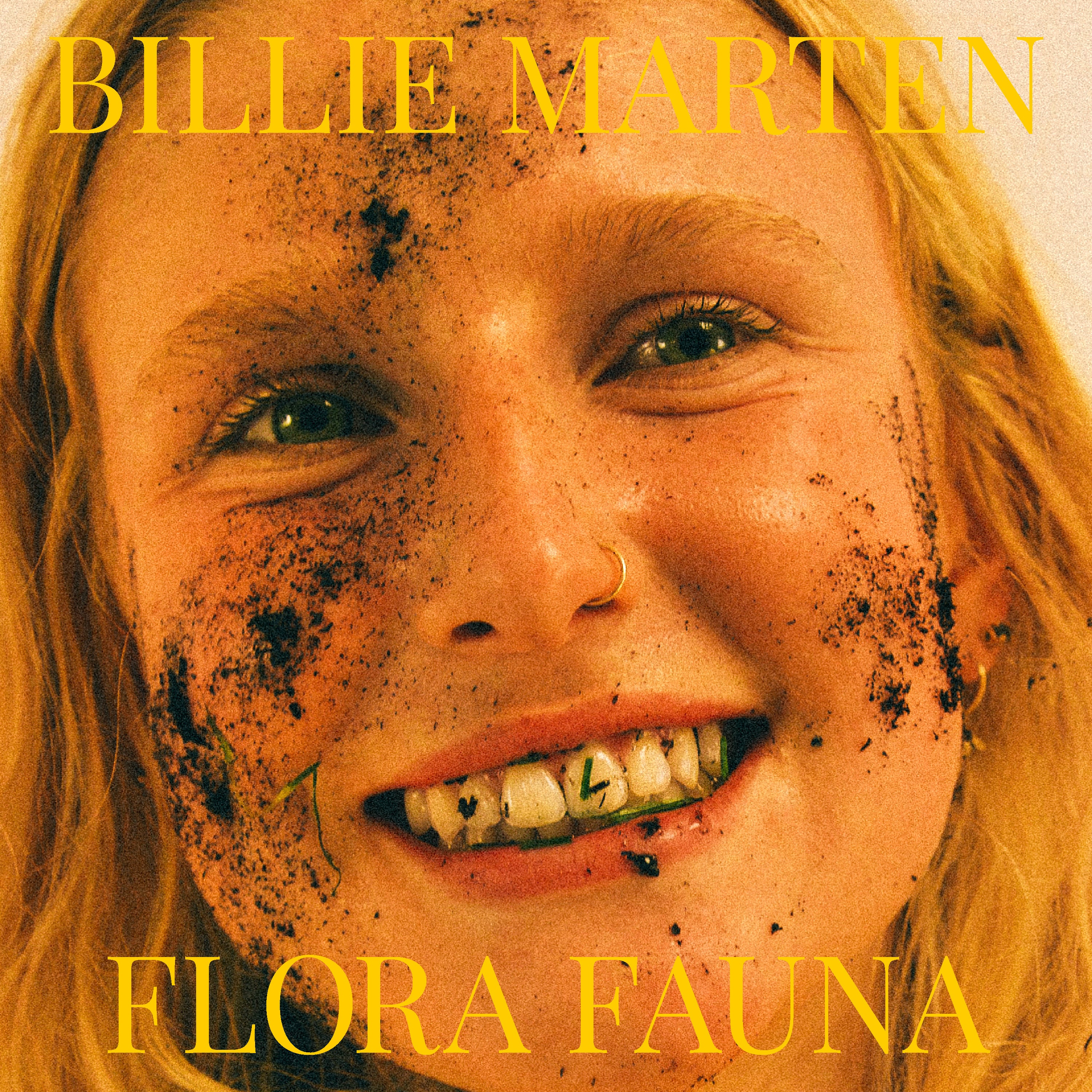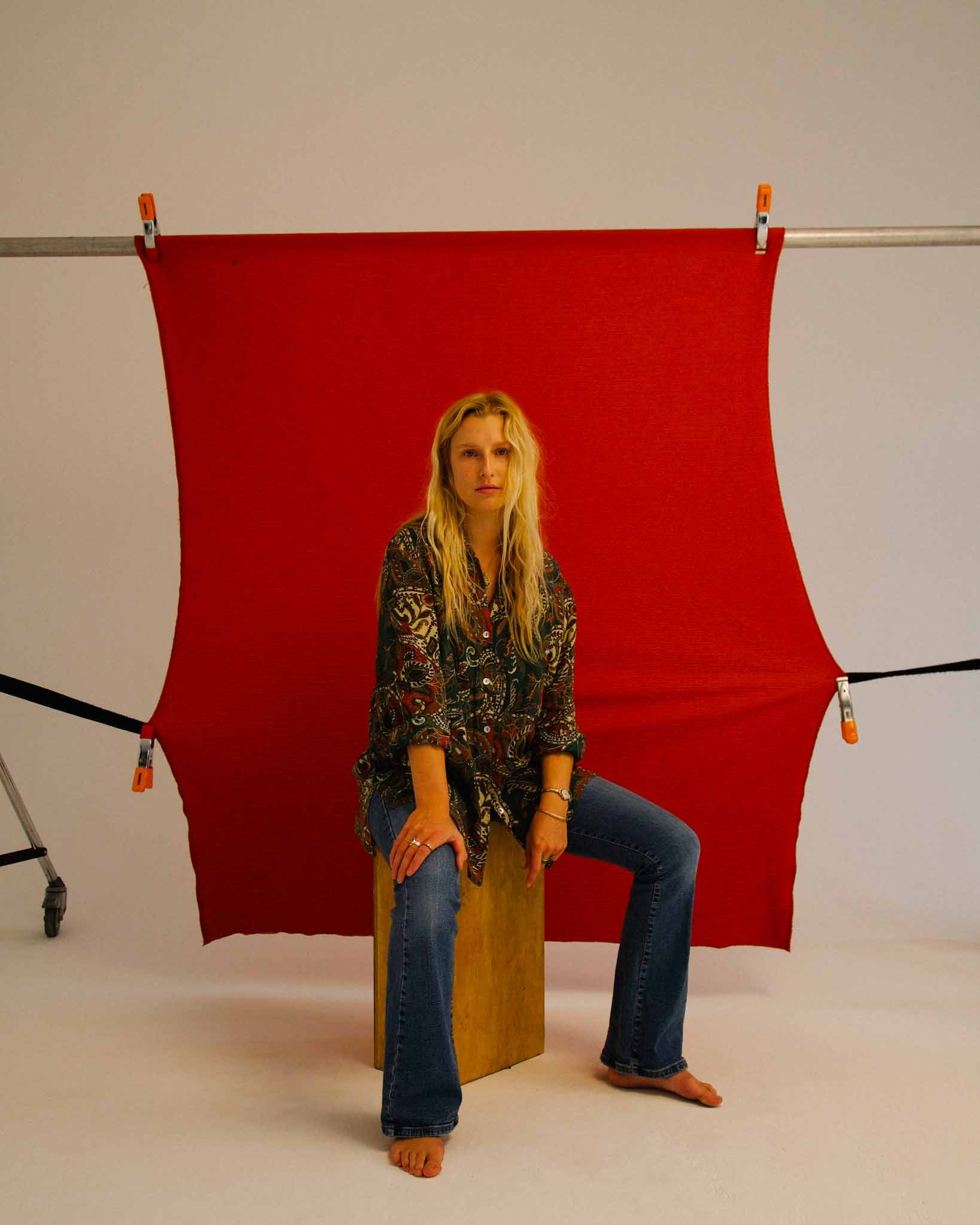Billie Marten: ‘Most people I know with a top 10 album are on Universal Credit’
The Yorkshire-born singer signed to Sony aged 16. Six years on, as she releases her third album, ‘Flora Fauna’, she tells Ellie Harrison why leaving the label was so liberating


Your support helps us to tell the story
From reproductive rights to climate change to Big Tech, The Independent is on the ground when the story is developing. Whether it's investigating the financials of Elon Musk's pro-Trump PAC or producing our latest documentary, 'The A Word', which shines a light on the American women fighting for reproductive rights, we know how important it is to parse out the facts from the messaging.
At such a critical moment in US history, we need reporters on the ground. Your donation allows us to keep sending journalists to speak to both sides of the story.
The Independent is trusted by Americans across the entire political spectrum. And unlike many other quality news outlets, we choose not to lock Americans out of our reporting and analysis with paywalls. We believe quality journalism should be available to everyone, paid for by those who can afford it.
Your support makes all the difference.You know in films when they’re screaming under water? That’s how I felt,” says Billie Marten, a plume of cigarette smoke escaping her mouth. The 21-year-old musician is describing the angst and depression she felt as a child and teenager, hardships she was uncertain about exposing in her music.
“I was worried about how deeply I was feeling things,” she says. “My peers were quite distant emotionally, and it was very taboo to feel anything other than… pumped.” She laughs. “But I was really trying to express deep depression, anxiety, complete isolation. It was quite intense. Mentally, I’m so much better now. I’m trying to eradicate that ‘tortured soul’ thing. It needs to get in the bin.”
It’s this tussle between withholding her emotions and letting them out that has characterised Marten’s music since she was discovered on YouTube aged 12. Her first two albums, 2016’s Writing of Blues and Yellows and 2019’s Feeding Seahorses by Hand, are both whispering, cautious records, poking at wounds without ever opening them up.
We meet at a pub on London’s Columbia Road, where I strain to hear Marten‘s soft voice over roaring motorbikes and hipsters. Her face is fresh and freckled. She uses her paler-than-pale eyelashes to comic effect, blinking emphatically after deadpan statements.
Her new album, Flora Fauna, is empowered by her split with Sony (more on that later) and finds her gleefully tearing off some heavy shackles. Her narrative was “getting bluer and bluer” and she “wanted to dig myself out of that hole”. Her signature hushed tones are still there, with floaty musings set to acoustic guitar, but the record is spiked with punch and grunge. “I picked up the bass, which made all my rhythms different,” she says. “I wanted it to be meaty and juicy and have something to grab hold of.”
The track “Ruin”, in which light plucking and crooning give way to a lively, galloping anthem, is a study of self-loathing. “If I spoke about another person the way I do about myself, it would be horrific, it would be bullying,” says Marten. “That’s what I was doing all the time. I was hanging around with the wrong people, having fleeting and unmeaningful relationships, drinking a lot and not eating. I was really not good on tour. I was so tired and cold all the time and couldn’t project my voice.”
“Human Replacement” – a scratchy, stealthy alt-rock song about not feeling safe to go out at night – was written long before the Sarah Everard case came to light, but now carries extra weight. “Every time I go outside, it’s on my mind,” Marten tells me. “I’ll always get something weird happening. Something not quite right. Microaggressions are the problem. How many times have you been walking down a street with your keys in between your knuckles? It’s so wrong.” In the video, Marten is riding an enormous army tank around central London. “I felt like Kendrick Lamar,” she says, delighted.
Other high points on the album are the glorious first single “Creature of Mine” and “Liquid Love”, a synthy lullaby that ascends, her airy voice layered like a choir. It’s Marten’s favourite. “There’s that line about kissing the lips of the sun every morning, something I’m very thankful for,” she says.

Marten was born in Risplith, a tiny village near Harrogate, her father a copywriter and her mother a teacher. “I keep putting across this very quaint image of myself and I’m doing it on purpose now because it’s funny,” she says, “but I literally was born in a house on a hill.” Her father took her outside to show her the world but was quickly scolded by the midwives.
Enjoy unlimited access to 100 million ad-free songs and podcasts with Amazon Music
Sign up now for a 4 month free trial (3 months for non-Prime members)
Enjoy unlimited access to 100 million ad-free songs and podcasts with Amazon Music
Sign up now for a 4 month free trial (3 months for non-Prime members)
Grammar school was somewhat thwarted by Marten’s budding music career. She joined Sony the day before her GCSEs, her revision notes under the table at her signing photo. Not long afterwards, she was nominated for the BBC Sound of 2016. From then on, she was shuttled to and from London, but was keen to keep her two lives separate. “I wouldn’t talk about school when I was in London and I wouldn’t talk about music when I was back being a normal person,” she says.
Marten thinks her school friends would describe her as “quite distant”. “I tried my hardest but I wasn’t into the things they were into,” she says, matter-of-factly. “There’s a certain level of responsibility [once you are signed], even if it’s very low key, not being able to have that drunken photo of you in a nightclub. I’ve kept a very small amount of close friends but I’ve always felt different. A bit skew-whiff.”
In 2019, after four years and two albums with Sony, Marten was dropped. “That was the best day of my life,” she says. “I got dropped. I went to see Big Thief at Shepherd’s Bush. Everyone at drinks was asking if I was okay. I was like, ‘I’m really good. This was my saving grace.’”

“The second album was an incredibly small, not single-worthy piece of music, and it made me really doubt it,” she continues, clearly keen to get things off her chest. She resented being thrown into the world of co-writing early on, and did sessions with Ivor Novello Award-winners Eg White and Justin Parker, who are known for their work with global superstars Adele and Lana Del Rey. “That’s not my musical world, it never has been,” says Marten, sighing deeply. “It’s assumed that’s the path you’re going to take.” When she’d first joined Sony, she was on their boutique label Chess Club. “Halfway through the second album, Chess Club went away and I was just left with everyone in this huge office and no one had heard my music,” she says. “It was like, why are we working together? I don’t see you, you don’t see me. That sort of thing shouldn’t happen. It’s sabotaging and it only looks bad on the artist.” Over lockdown, she signed with Fiction – which was home to The Cure for more than two decades – an experience she describes as “such a relief”.
Marten still feels angry about many aspects of the industry, specifically the huge chunk of the royalties that labels earn from streaming – leaving artists struggling. “Most people I know that have a top 10 album right now are on Universal Credit,” she says. “It’s embarrassing.”
She is optimistic about touring this year, however. “You have to be,” she says, “because if you aren’t it’s probably not going to happen.” Flora Fauna is out the week before her 22nd birthday. “I’m pitifully young,” she says, laughing. “It’s disgusting. It’s the one thing I don’t recognise. It feels like I’m lying. My mental age is mid-50s. I like the quiet, slow pace of life, and talking about old things. I’m really glad that I’m 21 going on 22, it’s a great time, I just feel weird about it.”
Flora Fauna is out on Fiction Records on 21 May



Join our commenting forum
Join thought-provoking conversations, follow other Independent readers and see their replies
Comments